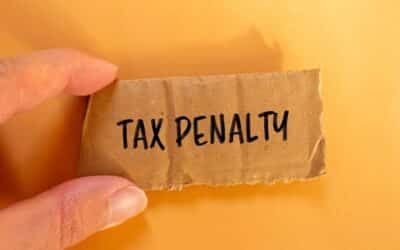Question: I have a significant balance in my employer’s 401(k) plan. Upon my upcoming retirement, I intend to roll over the funds in my employer’s plan to an individual retirement account (“IRA”) which will pass to my children upon my death. Will the assets in my IRA be exempt from my creditors during my lifetime and from my children’s creditors after my demise?
Answer: Generally speaking, qualified retirement plan assets such as profit sharing plan funds, 401(k) funds, IRAs, pensions and similar assets enjoy exemption from the account owner’s creditors under Illinois law. While assets are held in qualified retirement plans or IRAs, creditors of the account owner cannot garnish or otherwise seize these assets. While the law is not entirely clear in all cases, the same appears to hold true for retirement plan assets which pass to beneficiaries of the deceased plan owner such as children. Some notable exceptions include claims of divorcing spouses, child support obligations and in some cases Federal tax obligations.
The law is a bit more complicated in the bankruptcy context. Federal law exempts qualified retirement plan assets (e.g. profit sharing funds, 401(k) funds, pension assets, etc.) from the owner’s bankruptcy estate. IRAs are exempt from the owner’s bankruptcy estate subject to a statutory cap which periodically changes based on a cost-of-living index. The current cap is $1,245,475. IRAs which consist solely of funds rolled over to the IRA from qualified retirement plans are not subject to the cap and enjoy unlimited exemption from a bankruptcy estate.
One of the mistakes many plan owners make is commingling conventional IRA assets with funds rolled over from qualified retirement plans. The prudent plan owner will instead roll over qualified retirement plan funds to a separate IRA containing only funds which originated from qualified retirement plans as the bankruptcy exemption cap will not apply to these segregated assets. The bankruptcy exemption cap will, however, apply to funds held in conventional IRAs. An IRA owner can manage this risk in part by withdrawing funds needed from the conventional IRA first and permitting the rollover IRA to continue to grow on a tax-deferred basis.
How the bankruptcy exemption is applied after the account owner’s death is unclear. Some courts have ruled that retirement assets of the deceased owner continue to be treated as retirement assets of the deceased owner’s beneficiaries. A recent decision of the U.S. Court of Appeals for the Seventh Circuit reached a different conclusion holding that the funds in a daughter’s inherited IRA did not constitute retirement assets of the bankrupt beneficiary and were part of the daughter’s bankruptcy estate. As is often the case where there is a split in decisions between different courts in the Federal system, the U.S. Supreme Court may ultimately agree to accept a case on this issue and render a decision to provide for a uniform application of the inherited IRA bankruptcy exemption.
Since the State of Illinois falls within the 7th Circuit Court of Appeals, an IRA beneficiary who is an Illinois resident can expect that inherited IRA assets will not be protected upon the beneficiary’s bankruptcy. Absent bankruptcy, the inherited IRA funds may be exempt from the beneficiary’s creditors under Illinois law subject to the exceptions noted above.
An IRA owner may avoid subjecting a beneficiary’s inherited IRA funds to bankruptcy creditors by creating a trust to hold the owner’s retirement assets upon the owner’s death. While beyond the scope of this discussion, a trust can be properly structured to pass retirement plan assets to a deceased owner’s beneficiaries without exposing the trust corpus to creditors in the unfortunate event of the beneficiary’s bankruptcy. Unless and until the law is resolved in favor of exempting inherited IRA assets from a beneficiary’s bankruptcy estate, an account owner would be well advised to use a trust to ensure that creditor protection is available for retirement assets passing to beneficiaries.
The Tax Corner addresses various tax, estate, asset protection and other business matters. Should you have any questions regarding the subject matter, you may contact Bruce at (312) 648-2300 or send an e-mail to [email protected].
CIRCULAR 230 Notice: In order to comply with requirements imposed by the Internal Revenue Service, we wish to advise you that (a) any U.S. federal tax advice contained in this communication is not intended and cannot be used for the purpose of avoiding tax-related penalties, and (b) no one, without prior written consent, may use any advice contained in this transmission in promoting, marketing, or recommending any entity, investment plan, or arrangement to another taxpayer.


